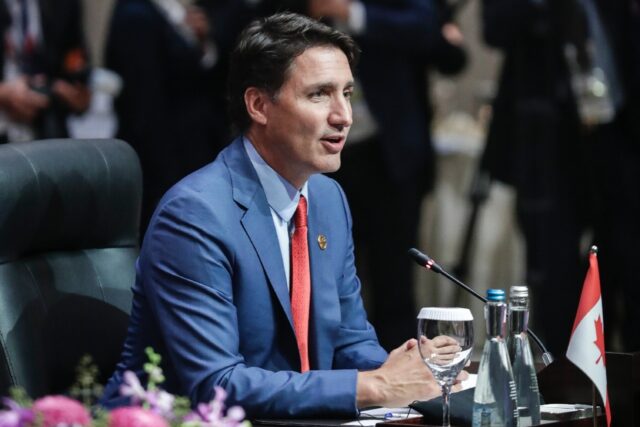Canada on Thursday named an appeal’s court judge to lead a public inquiry into allegations of foreign meddling — including by China — in its elections.
Quebec Court of Appeal Justice Marie-Josee Hogue’s appointment follows the sudden resignation in June of another official tapped to investigate the claims in a less formal way.
“Foreign interference in Canadian democratic institutions is unacceptable,” Public Safety Minister Dominic LeBlanc told a news conference.
“Justice Hogue will be tasked with examining and assessing interference by China, Russia and other foreign states and non-state actors,” he said.
She will have broad investigative powers and, according to Leblanc, will be expected “to follow the evidence” as she probes “any potential impacts on the 2019 and 2021 general elections.”
Canada-China relations hit a new low this year amid accusations of Chinese meddling in Canada’s last two elections and the attempted intimidation of MPs that led to the expulsion of a Chinese diplomat in May.
Beijing has called the accusations “groundless,” and responded by sending home a Canadian diplomat from Canada’s consulate in Shanghai.
Prime Minister Justin Trudeau’s minority liberal government initially balked at holding a public inquiry, as it faced pressure to explain how it first responded to the claims that Beijing sought to subvert Canada’s democratic process.
The reported accusations included secret campaign donations and Chinese operatives working for Canadian candidates or lawmakers in an attempt to influence policy.
More recently, it emerged that Beijing sought to intimidate an opposition Canadian lawmaker and his relatives in Hong Kong over his criticisms of China.
The Tory MP, Michael Chong, is scheduled to testify about his experience at a US congressional hearing next week.
Former governor general David Johnston was originally tasked with looking into the claims, but quit after 12 weeks, citing a “highly partisan atmosphere around my appointment and work.”
Opposition parties accused him of being too close to Trudeau and demanded an independent public inquiry instead.
Some also pressed to have its scope broadened to include Russia, Iran and others hostile to Canada.
Before resigning, Johnston released a draft report in which he concluded Beijing sought to interfere in Canada’s 2019 and 2021 ballots, but failed to change the outcome of the votes.
Hogue’s nomination comes after months of negotiations between the government and opposition parties on the public inquiry’s terms of reference and who should lead it.
LeBlanc said she has the support of all parties.
She is to release an initial report in February 2024 and a final version ahead of a ballot expected the following year.

COMMENTS
Please let us know if you're having issues with commenting.